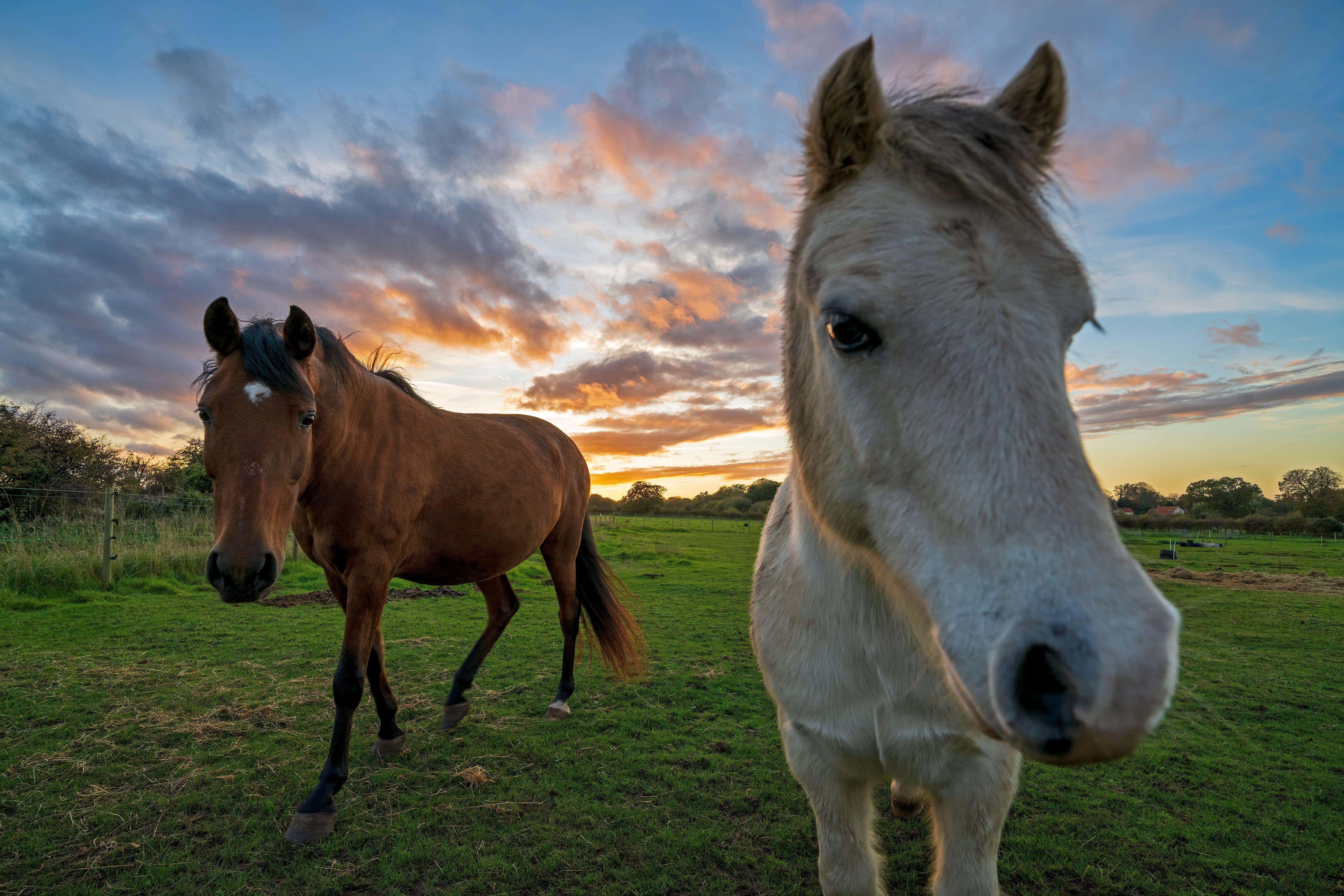Horses are a lot smarter than we previously thought, new research shows
The researchers set 20 horses a task consisting of three stages

Horses are much smarter than we previously thought, scientists have said.
A new study showed the animals performed better than expected in a complex reward-based game.
Researchers found that when denied treats for not following the rules of the game, the horses were able to instantly switch strategies to get more rewards.
It shows the animals have the ability to think and plan ahead – something previously considered to be beyond their capacity, scientists from Nottingham Trent University (NTU) said.
Knowing how horses learn can help carers train them more humanely and improve their welfare, the team added.
Dr Carrie Ijichi, a senior lecturer in equine science at NTU, said: “Horses are not natural geniuses, they are thought of as mediocre, but this study shows they’re not average and are, in fact, more cognitively advanced than we give them credit for.”
To understand more, the researchers set 20 horses a task consisting of three stages.
In the first stage, the animals touched a piece of card with their nose in order to get a treat.
But things became more complicated when a light was introduced and horses were only allowed a snack if they touched the card while the light was switched off.

The team found that the horses kept blindly touching the card, regardless of whether the light was on or off, and were rewarded for correct responses.
In the final stage of the game, a penalty was put in place where touching the card when the “stop” light was on resulted in a 10-second time-out.
But instead of indiscriminately touching the card, the team found that the horses were engaging with the rules – only making a move at the right time in order to receive their treat.
The researchers said this suggests that rather than failing to grasp the rules of the game, the horses had understood it the whole time but had found a way to play in the second stage that did not require much attention.
Louise Evans, a PhD candidate based in NTU’s School of Animal, Rural and Environmental Sciences, said: “We were expecting horses’ performance to improve when we introduced the time-out, but were surprised by how immediate and significant the improvement was.
“Animals usually need several repetitions of a task to gradually acquire new knowledge, whereas our horses immediately improved when we introduced a cost for errors.
“This suggests that the horses knew all along what the rules of the game were.”
The researchers said the findings, published in the journal Applied Animal Behaviour Science, suggests horses have the ability to form an internal model of the world around them to make decisions and predictions, a technique known as model-based learning.
It was previously thought that model-based learning was too complex for horses because they have an underdeveloped pre-frontal cortex, a part of the brain associated with strategic thinking.
Dr Ijichi said this suggests that the hoses “must be using another area of the brain to achieve a similar result”.
She said: “This teaches us that we shouldn’t make assumptions about animal intelligence or sentience based on whether they are ‘built’ just like us.”
Subscribe to Independent Premium to bookmark this article
Want to bookmark your favourite articles and stories to read or reference later? Start your Independent Premium subscription today.
